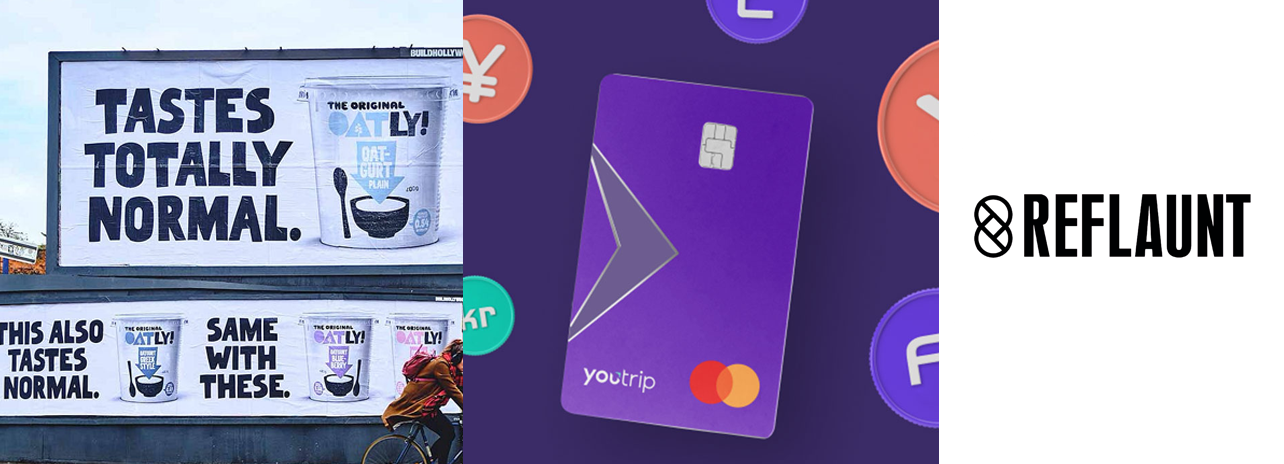
Welcoming 2025, Full of Choice and Reflection


Thought Leadership
Going against the norm has never look so cool (and successful)
Standing out in our brand-saturated attention economy is hard enough, but really disrupting the status quo? Which company can be said to have made a meaningful change to not only their category but also to the world — breaking the rules, taking risks, and really solving problems for people?
Here at MullenLowe, as a creative growth company, we love to challenge conventional norms. And we applaud any business that can come into a crowded market and create alternative ways of buying, living and thinking.
It’s also worth noting that being a challenger is a state of mind — it’s not only the domain of small, upstart enterprises, but we believe big brands can break the mold too, as long as they have the right mentality and determination to make a difference.
Though there are too many to list, in this article we start with three challenger brands we love.
#1: Challenging the giants in the dairy industry
Milk is just milk, right? Not after Oatly came on the scene. Founded in the 1990s by Swedish brothers who were researching alternatives to cow’s milk for lactose intolerant people, Oatly was a real pioneer in providing dairy alternatives during a time where it wasn’t so trendy.
Oatly’s message “It’s like milk, but made for humans” was provocative, and indeed, the Swedish dairy lobby sued Oatly on the grounds that their slogan disparaged cow’s milk and won. However, Oatly didn’t cower. Instead, they published the lawsuit online and took out full-page ads that encouraged public perception of them as the underdog. It led to a 37% increase in sales across Europe and Asia.
We love Oatly’s fearlessness and distinct ability to showcase their point of view with a winning formula of wit, self-deprecation and fun that has managed to change the way we view alternative milks altogether.
#2: Going against established category rules to solve pain points
In this day and age where people are hopping across countries all the time, it seems incredible that we still have to pay hefty transaction fees when paying across currencies in different countries or hold on to extraordinarily large amounts of cash. Yet, traditional finance providers were not able to address such pain points until a new generation of fintechs came into the picture.
Launched in 2018, YouTrip is a Singapore-based multi-currency e-wallet that enables travelers to pay in foreign currency without hidden transaction fees or high exchange rates. The fintech aims to shake up the finance scene in Asia and become a must-have for modern, digitally savvy globetrotters.
The financial service industry is still seen as conservative and risk-averse, especially in Asia, but YouTrip is giving us a taste of the challenger bank revolution that happened in the US and Europe. In 2019, it raised $25.5 million in funding which is meant to bring their services to more countries in the region.
#3: Transforming the fashion business model from linear to circular
Sustainable fashion is picking up in the headlines but it still remains on the sidelines as fast fashion continues to dominate the sector. Yet, the environmental implications of fast fashion are tremendous: the average person today buys 60% more clothing than they did 15 years ago, but keeps them for only half as long.
Reflaunt wants to turn this around as a game-changer in the luxury resale market by connecting directly to big brands like Balenciaga, Net-a-porter and Cos. Its technology enables consumers to sell unwanted items back to the brand they purchased from — bridging a key gap between the small secondhand market and the large fashion conglomerates.
What’s admirable about Reflaunt is its mission to transition the fashion industry away from a linear model of make, use, and throw to a circular, sustainable model of consumption — where there is not only business value, but a way for companies and people to contribute to protecting the environment.
{"fill_in_all_required_fields":"Please fill in all required fields.","enter_valid_email":"Please enter valid email address.","something_went_wrong":"Something went wrong. Please refresh the page and try again.","submitting_no_longer_accepted":"Form submissions are no longer accepted. Please try again later.","token_has_expired":"This form has expired. Please refresh the page and try again.","must_agree_to_data_collection":"You must agree to our data collection terms to submit this form.","problem_with_submitted_data":"There was a problem with your form data. Please review your information and try again.","checkbox_icon_description":"checked checkbox","registration_successful":"Registration successful","thank_you_for_registering":"Thank you for registering for the report. You can now download the report.","download_report":"Download the Report"}